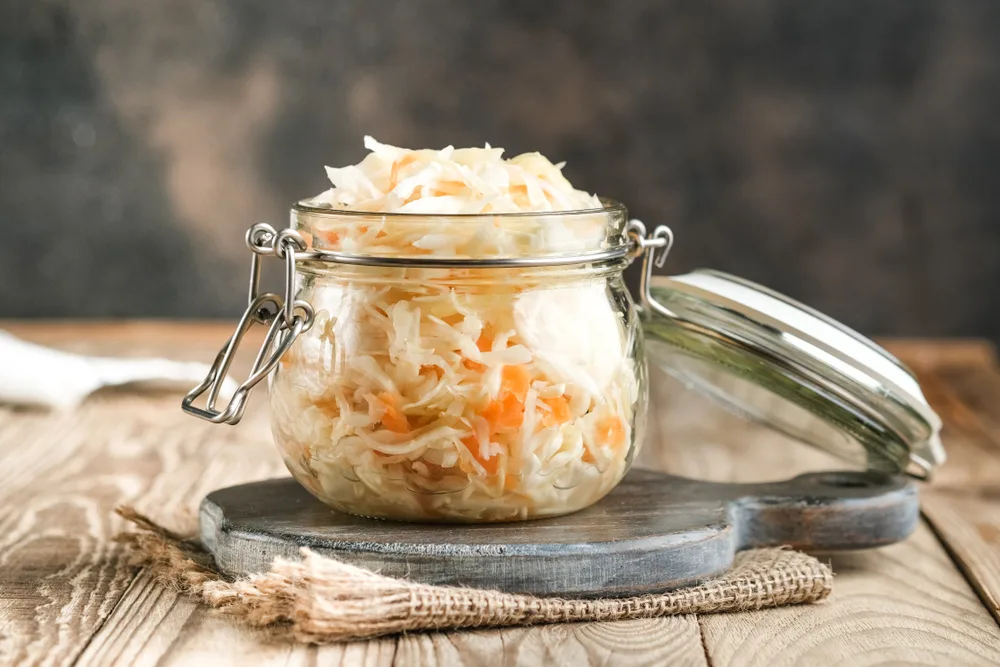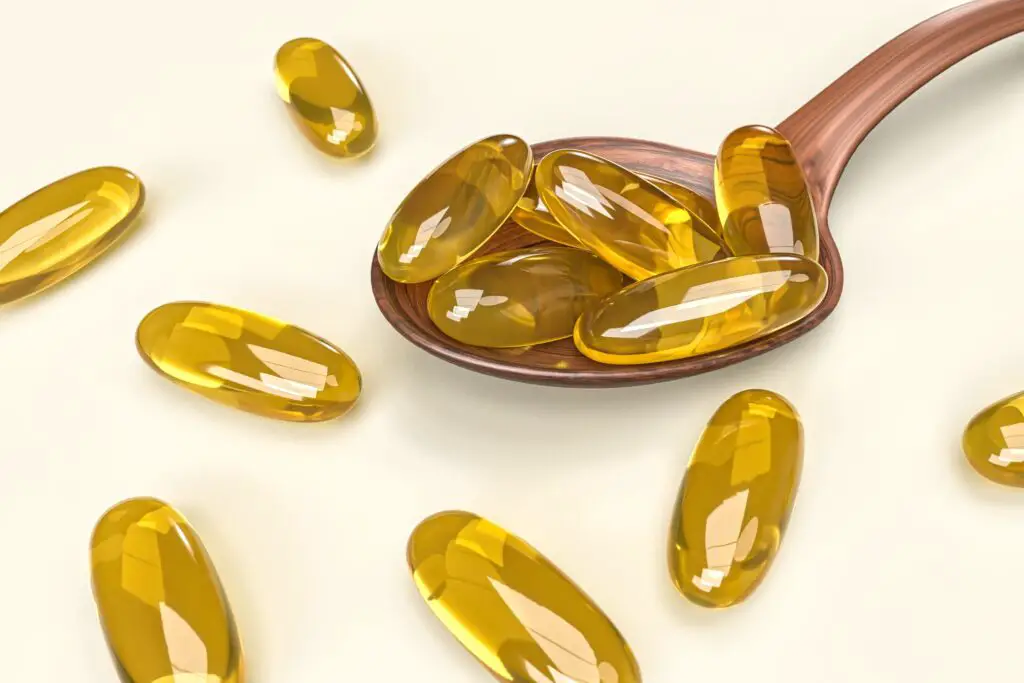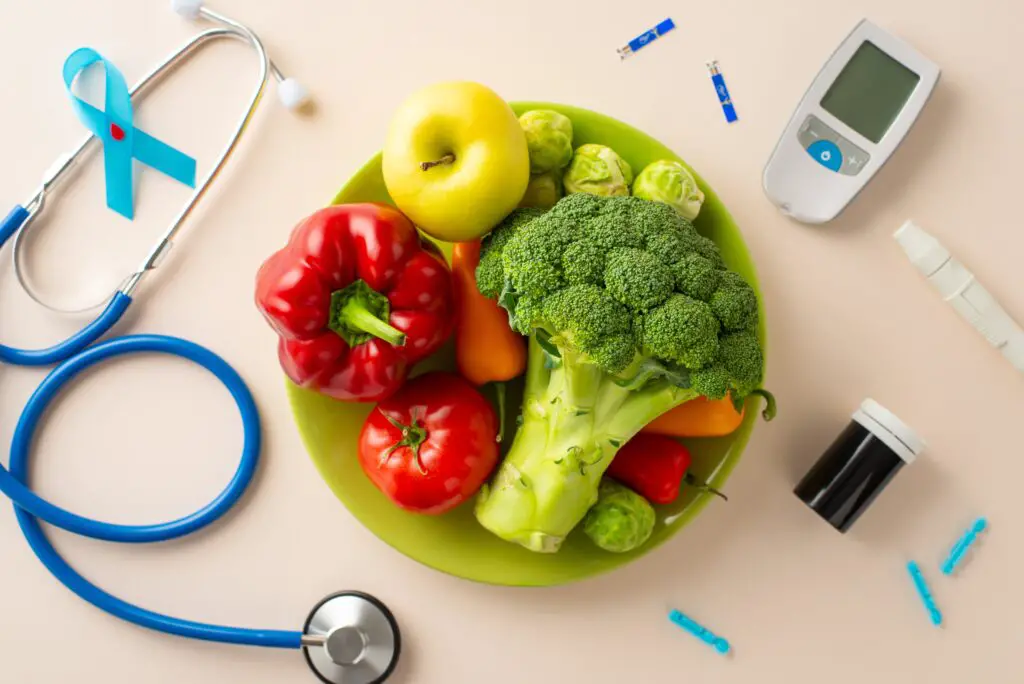Table of Contents
If you frequently experience bloating, gas, or discomfort after eating, your body might not be producing enough digestive enzymes. These vital catalysts help break down proteins, fats, and carbohydrates, allowing your body to use the nutrients for energy and repair.
While your body naturally creates these vital compounds, certain conditions and lifestyle choices can impair their production. To compensate for potential deficiency in enzymes, it is important to incorporate enzyme-friendly options, like vegetables, fruits, and probiotics, into your diet.
In this post, you’ll learn how digestive enzymes work, their benefits, and how to maximize their function for optimal health.
What are digestive enzymes?
Digestive enzymes for protein are produced by your body. They are found throughout your digestive system, from your mouth to your small intestines (1). These catalysts break down food proteins, fats, and carbohydrates into smaller, more absorbable nutrients. When large components are broken down, it’s easier for your body to use these valuable building blocks for energy, growth, and repair.
Are digestive enzymes the same as probiotics?
While both digestive enzymes and probiotics play a role in keeping your gut healthy and digestion smooth, they work in distinct ways (2).
Digestive enzymes directly target food molecules, breaking them down for absorption.
Probiotics are live beneficial bacteria that help repopulate the healthy bacteria in your gut (3). They contribute to digestion by creating a healthy gut microbiome, potentially reducing digestive discomfort.
Beneficial bacteria, like Lactobacilli, can also encourage your body to produce even more digestive enzymes (4).
The enzyme that breaks down starches into simple carbohydrates
Amylase is responsible for breaking down complex starches into simpler sugars (5). It breaks bonds between starch molecules, releasing smaller sugar units your body can absorb and use.
Digestive enzymes are proteins that break down food into smaller, absorbable building blocks. The process allows your body to use protein, fat, and carbohydrate nutrients for energy, growth, and repair.
Both digestive enzymes and probiotics support digestive health. However, the former directly targets food molecules, while the latter are beneficial bacteria that promote a healthy gut and even boost your body’s natural production of digestive enzymes.
Types of digestive enzymes
Your body produces digestive enzymes as needed. The process involves signals from the digestive system to the salivary glands, stomach, and pancreas. These organs release specific enzymes tailored to the types of food consumed. The three main types include (5):

Amylase
Amylase production occurs in the salivary glands and pancreas. The enzyme breaks down complex carbohydrates, like starches, into simpler sugars like maltose and glucose (6). The small intestine ultimately absorbs these sugars. Once absorbed in the bloodstream, your cells can use glucose directly for fuel.
Lipase
The pancreas is the main production site for lipases (7). However, the stomach and mouth also contain small amounts of lipases (7). Lipase is essential for digesting dietary fats (triglycerides). It breaks them down into fatty acids and glycerol (7).
Like simple sugars, your body uses fat molecules for immediate energy needs. If there’s an excess of fatty acids, the body will store them in fat cells for future energy use (8).
Proteases
Proteases, sometimes called proteinase, are a group of enzymes that work together to degrade or break down proteins (9). These include pepsin, trypsin, and chymotrypsin (10). Pepsin, produced in the stomach, initiates protein hydrolysis in the stomach’s acidic environment (10).
The pancreas takes over by releasing trypsin and chymotrypsin (10). Combined, they further break down proteins into individual amino acids. Your body uses these building blocks to construct and repair its own protein.
Digestive enzymes are most effective under specific conditions:
- pH: Each enzyme functions best within a particular pH range. For example, pepsin in the stomach works optimally in a highly acidic environment. Enzymes released by the pancreas prefer a more neutral pH (11).
- Temperature: Body temperature (around 37℃/98℉) is ideal for enzyme activity. Extreme temperatures can damage the enzymes’ structure and reduce their effectiveness (12).
The three main types of enzymes are amylase, lipase, and protease. Amylase breaks down carbohydrates into sugars, lipase digests fats into fatty acids, and protease dismantles proteins into amino acids. For optimal function, digestive enzymes require specific pH levels and temperatures.
Which enzyme helps in protein digestion?

Protein digestion relies on a group of enzymes called proteases.
Pepsin, secreted by chief cells in the stomach lining, plays a significant role. It thrives in the acidic environment created by hydrochloric acid, where it breaks down protein into simple forms called polypeptides (13).
Polypeptides are an intermediate stage in protein digestion. They are still too large for your body to absorb.
The pancreas then produces trypsin and chymotrypsin. These enzymes break down polypeptides into smaller peptides and eventually into individual amino acids, making them ready for absorption in the small intestine.
A chemical that breaks up large fat droplets
While not an enzyme itself, bile plays a role in breaking up large fat droplets through a process called emulsification.
The liver produces bile and stores it in the gallbladder (14). When fatty foods enter the digestive system, the liver releases bile, increasing the surface area available for lipase to work on.
Any condition or factor that affects the production or release of bile, like liver problems or bile duct blockages, can impair fat digestion (15).
The enzyme that starts to digest proteins in the stomach
Pepsin is responsible for starting protein digestion in the stomach. It can function in the highly acidic environment created by the hydrochloric acid released by gastric juices in the stomach lining.
Protein digestion relies on proteases, starting with pepsin in the stomach’s acidic environment. The pancreas then releases other enzymes, which break down larger forms into individual amino acids.
Bile is essential for fat digestion. It’s produced by the liver and emulsifies large fat droplets, making it easier for lipase to break down.
Insufficient bile, digestive enzymes, and stomach acid can all disrupt digestion, which can cause malabsorption of vital nutrients. Age, diet, and lifestyle factors such as stress, medications, and substances, as well as inadequate sleep, can all compromise the production of these processes.

Potential risks and side effects of digestive enzymes
Digestive enzyme supplements are generally safe. However, they can lead to side effects, especially when taken in high doses or without proper guidance.
Mild digestive discomfort
Initially, introducing digestive enzymes might cause gas, bloating, and changes in stool patterns (38). Your digestive system is adjusting to a new way of processing food, and sometimes, the breakdown of nutrients can temporarily lead to increased gas production. These symptoms should dissipate as your body adapts.
Allergic reaction
Though rare, you may experience allergic reactions. For example, you might react to bromelain if you have a pineapple allergy.
Potential interactions
Digestive enzymes can sometimes interact with medication by affecting how your body metabolizes some treatment (39). It’s best to consult your doctor before starting supplements, especially if you take other medications for any complications.
Underlying conditions
You should consult your healthcare practitioner before starting enzyme supplements if you have underlying gastrointestinal conditions, like ulcers or pancreatitis (40). Enzymes like proteases can irritate existing ulcers.
Digestive enzymes are generally safe, but they can cause mild side effects like gas, bloating, and changes in stool patterns. Though rare, allergic reactions are possible. It’s best to consult your doctor before starting supplements, particularly if you take medications or have an underlying digestive condition.
How to increase digestive enzymes naturally?
The body naturally produces digestive enzymes. However, there are lifestyle modifications you can adopt to support enzyme function and promote smooth digestion.


Eat a well-balanced diet
You’ve probably heard the saying, “You are what you eat.” A diet rich in unprocessed foods provides the components your body needs to produce enzymes. Focus on fruits, vegetables, whole grains, lean protein sources, and probiotic-rich foods. These foods naturally contain vitamins, beneficial bacteria, and minerals that aid enzyme activity (16, 17).
Mindfully chew your food thoroughly
Digestion begins in your mouth. Thoroughly chewing food mixes it with amylase-containing saliva. The enzyme starts breaking down complex carbohydrates into simple sugars, easing the workload on the rest of the digestive catalysts. Take the time to really be present when you’re eating, as this will support digestion.
Maintain hydration
Dehydration can thicken digestive juices and hinder enzyme function. To keep your digestive system running smoothly, aim to drink at least 1.5 L of water per day (18).
Manage stress
Chronic stress can disrupt the digestive system, potentially affecting enzyme production (19). Techniques like yoga, meditation, and deep breathing can help manage stress and promote overall digestive health (20).
Obtain regular & adequate sleep
Sleep is significant for GI health. Inadequate sleep compromises stomach acid, which impedes the production of digestive enzymes. Compromised digestion can also result in altered integrity of the gut epithelial barrier, leading to intestinal permeability or leaky gut.
Supplements
While your body is apt at producing its own enzymes, certain conditions can disrupt this process. Enzyme supplementation can be helpful in the following scenarios:
- Lactose intolerance
When you’re lactase deficient, it can be challenging for your body to break down lactose (milk sugar). Lactose intolerance can cause digestive discomfort after consuming dairy products. Lactase supplements can help manage this condition.
- Exocrine pancreatic insufficiency
When the pancreas cannot produce sufficient amounts of digestive enzymes, pancreatic insufficiency arises (21). This condition can lead to malabsorption and other digestive issues, like cramps and diarrhea (21, 22).
Pancreatic enzyme replacement therapy (PERT), combined with other enzymes, is used to manage this condition. A study on two groups of people with diabetes found that PERT helped improve digestion issues in 80 percent of the patients receiving therapy compared to only 20 percent in the control group (23).
To support the production of digestive enzymes, eat a balanced diet rich in whole foods, fruit, and vegetables. Remember to chew your food thoroughly, drink plenty of water, and manage stress levels.
You can take enzyme supplements in specific cases like lactose intolerance or exocrine pancreatic insufficiency.
12 foods that contain natural digestive enzymes


Pineapple
Pineapple contains bromelain, a protease enzyme. It breaks down proteins, easing digestion and reducing bloating (24).
Incorporate ½ to 1 cup of fresh pineapple a few times a week by adding it to smoothies or creating a refreshing pineapple salsa.
Papaya
Papaya provides papain, an enzyme similar to bromelain (25). It offers comparable digestive benefits and soothes tummy troubles.
Enjoy this tropical fruit in salads and smoothies, or use it as a base for savory sweet marinades.
Banana
Bananas aren’t only fiber-rich but also contain amylase (26). The enzyme helps break down complex carbohydrates, providing a steady energy source and helping regulate blood sugar.
You can slice bananas on oatmeal, use them in pancakes, or freeze them for a creamy, healthy dessert.
Mango
A sweet and vibrant fruit, mango also delivers amylase for carbohydrate digestion (27).
Enjoy it as a refreshing snack, create mango salsa, or add it to smoothies.
Avocado
Creamy and rich, avocado is a good source of lipase (28). It assists in breaking down fats for absorption, which is especially important for utilizing fat-soluble vitamins A, D, E, and L (29, 30).
Mash the fruit into guacamole, whip up avocado toast, or blend some into your smoothies for extra richness.
Kiwifruit
Kiwi is a rich source of another type of protease, actinidin (31). It can ease discomfort associated with food sensitivities.
You can include it in fruit salads, mix it into yogurt to boost your probiotic intake, or add it to meat marinades.
Sauerkraut
A classic fermented cabbage dish, sauerkraut teems with beneficial bacteria. It also contains proteases, glycases, and amylase (32). They work together by breaking protein into usable amino acids and starches into simple sugars for your body to absorb.
Add sauerkraut to salads, use it as a topping for sandwiches or burgers, or enjoy it as a side dish.
Kimchi
A spicy Korean staple, kimchi is made by fermenting a medley of vegetables and spices, like cabbage, garlic, ginger, and chili peppers. It contains protease, helping reduce feelings of heaviness after protein-heavy meals (33).
Enjoy it as you would sauerkraut.
Miso
Miso is a traditional Japanese dish made from fermented soybeans. Koji (a fungus used in its production) generates amylase and protease, making it a versatile ingredient for supporting balanced digestion (34).
A small amount goes a long way! Add 1 to 2 tablespoons of miso paste to soups, broths, marinades, or even whisk a little into salad dressings.
Kefir
Kefir is a dairy drink rich in lactase. The enzyme breaks down lactose (a sugar found in milk) into its simple form. If you’re lactose intolerant, the beverage can improve dairy digestion (35). Plus, kefir delivers helpful bacteria, further supporting gut health.
Enjoy kefir in smoothies, soak oats in it for overnight oats, or try savory kefir-based sauces.
Honey (raw)
While honey is primarily a sweetener, raw, unprocessed varieties offer diastase, a type of amylase essential for carbohydrate digestion (36).
It also contains glucose oxidase and catalase.
Glucose oxidase helps regulate blood sugar levels by converting excess glucose into its simple form (gluconic acid) (36). Catalase neutralizes hydrogen peroxide (a byproduct of various metabolic processes) to protect cells from oxidative damage (36).
Ginger
Ginger contains zingibain, a protease enzyme that can complement your body’s own enzymes and aid in smooth protein digestion (37).
Steep grated ginger in hot water for tea, stir it into sauces and marinades or add it to stir-fries and soups.
Pineapple and papaya contain protease and offer similar digestive benefits. Bananas and mangoes contain amylase, which supports carbohydrate breakdown. Avocado contains lipase, essential for fat digestion.
Kiwifruit provides actinidin, aiding in protein digestion. Sauerkraut and kimchi are rich in probiotics and enzymes that balance digestion.
Miso provides both amylase and protease, supporting carbs and proteins. Kefir offers lactase for lactose digestion.
Raw honey contains diastase (amylase) for carbohydrate digestion. Ginger provides zingibain, another protease that assists protein digestion.



How can I digest my protein better?
To digest protein better, start by chewing your food thoroughly. This initial breakdown makes it easier for the stomach and small intestine to complete digestion.
Support your stomach’s natural acidity by eating a balanced diet, managing stress, and obtaining enough sleep. Drink enough water and implement appropriate forms of movement to your daily regimen to support improved digestion and efficient enzymatic function.
Choose lean protein sources like chicken, fish, or beans: they are easier to digest than fatty cuts of meat (41).
Address any underlying gut health issues like intestinal permeability (leaky gut), dysbiosis, or other conditions like irritable bowel syndrome (IBS) with a skilled practitioner.
What supplements help absorb protein?
You can take proteases (pepsin, bromelain, and papain) as supplements. They assist in breaking proteins down into forms your body can absorb.
What are the symptoms of poor protein digestion?
If you experience gas, bloating, or changes in your stool (diarrhea or foul-smelling stools), it could mean your body is struggling to digest protein (42). Feeling heavy or nauseous after protein-rich meals is another potential sign.
What makes protein hard to digest?
Low stomach acid hinders pepsin’s activity, slowing down the entire digestive process (43).
Exocrine pancreatic insufficiency and lactose intolerance reduce your body’s ability to produce necessary digestive enzymes. Rushing through your meals gives your stomach less time to break down large protein pieces.
Summary
Digestive enzymes play a vital role in transforming the foods you eat into usable nutrients. Your body naturally produces them; however, diet and specific health conditions can affect their levels.
Understanding the types of enzymes and how to support their function helps you enhance your body’s ability to break down food and absorb valuable nutrients.
Eating a healthy diet, managing stress, and considering supplements are all ways to ensure your digestive system is functioning at its best.
Have you tried digestive enzyme supplements to boost your digestion? In what way have they made you feel your best? Share your experiences in the comments.

















Comments
0